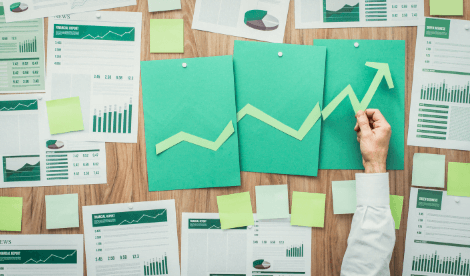Coronavirus support for the self-employed
Last updated 7 January 2021
Government increases self-employed support to 80% of average profits – up to £7,500 until April 2021.
We have come a long way as a nation since the Chancellor announced his plan of support for self-employed individuals at the end of March 2020. The Coronavirus Job Retention Scheme (“CJRS”) started to pay out to employers who furloughed their staff at the end of April and May saw the Self Employment Income Support Scheme (“SEISS”) rolled out.
On 24 September 2020, the Chancellor confirmed that the SEISS will be extended for a further six months, another two grants, from November 2020 to April 2021, to give more security to individuals whose livelihoods have been adversely affected by Coronavirus.
To make a claim for the third grant your business must have had a new or continuing impact from Coronavirus between 1 November 2020 and 29 January 2021, which you reasonably believe will have a significant reduction in your profits.
The third taxable grant is worth 80% of your average monthly trading profits, paid out in a single instalment covering 3 months’ worth of profits, and capped at £7,500 in total.
The fourth grant will cover the three month period from February until the end of April 2021. The details of this fourth grant will be provided by the Government at a later date.
Who can apply?
For the third grant, self-employed individuals or members of a partnership can apply if you:
- have submitted your Income Tax Self Assessment tax return for 2018/19 before 23 April 2020
- traded in the tax year 2019/20
- are trading when you apply, or would be except for COVID-19
- intend to continue to trade
- you reasonably believe there will be a significant reduction in your trading profits during the period 1 November 2020 to 29 January 2021
- have self-employed trading profits of less than £50,000, and more than half of your income comes from self-employment (HMRC decide this based on your tax returns filed for the three years to 2018/19).
You are still eligible if you meet the criteria above but did not claim the previous grants.
You must keep evidence that shows how your business has been impacted by COVID-19 resulting in less business activity than otherwise expected. You must also decide if the impact on your business will cause a significant reduction in your trading profits for the tax year you report them in.
HMRC do not give an exact definition of ‘significant reduction’ but have provided some examples to help you decide here. Each case will be different and it is important to understand the reasons for any significant reduction to trading profits.
How much will you get?
- You are now unable to apply for the first or second SEISS grants, as the deadlines have passed. A single payment for each grant will have been paid directly into your bank account if eligible and approved.
- The first grant was for 80% of the average monthly based on the previous 3 tax years (or the average of 1 or 2 years if you do not have 3 years), up to a maximum of £2,500 per month for 3 months (backdated to 1 March).
- The second grant was for 70% of the average profits, up to a maximum of £6,570 and applications closed on 19 October 2020.
- The third grant which is still open will cover 80% of the average profits, up to a maximum of £7,500.
- This is not tax-free income. The payments will form part of your trading profit for the year and be taxed along with the rest of your trading profits through your Self-Assessment Tax Returns.
SEISS is effectively a three step plan:
- Eligibility decided by HMRC
- Application by taxpayer
- Payment of successful claims
What can I do now to claim the third SEISS grant?
Step 1 – Eligibility
- Whilst HMRC released an eligibility checker for the first two grants, these are no longer available as there are stricter conditions to be met on whether your businesses has been impacted by COVID-19. You can still follow the guidance as to whether you can claim through this link.
- HMRC have been contacting taxpayers via email, SMS or post (depending on the data they hold). You will only be contacted in one way so if you have not been contacted you can use the HMRC guidance to review your position.
Step 2 – Application
- You will need to log into your Government Gateway account.
- If you don’t have a Government Gateway account, you will be able to set one up as part of the application process. This should be preferable to applying for an account now which can be delayed while a code comes in the post
- Within the SEISS portal, taxpayers will see the detailed HMRC calculation showing their potential claim amount and will be asked to:
- confirm eligibility criteria;
- complete declarations, including that the business has been adversely affected by coronavirus leading to a significant reduction in trading profits; and
- supply the bank account details for the grant to be paid into.
- Only the taxpayer can make this application; not your agent and not by giving your agent your access details. HMRC’s anti-fraud measures require that it is only the taxpayer who applies and, if there are flags raised in the application, the SEISS payment could be delayed.
- Claims must be made on or before 29 January 2021.
Step 3 – Payment
- Subject to a successful application, HMRC are aiming to process claims from application to payment in 6 working days.
What is missing or still requiring clarification?
- If you have started trading on or after 6 April 2019 you will not be covered by these measures. For new self-employed businesses there is scope to claim support through benefits. We would like to see scope to claim relief once 2019/20 Tax Returns are submitted for newly self-employed individuals who otherwise meet the criteria for SEISS.
- Is there a clawback of the grant? You will be required to apply for the grant and this includes self-certification that you have lost trading profits as a result of Coronavirus. HMRC have made clear they will be seeking out any fraudulent claims made and they could recover the full amount and charge penalties.
- HMRC have changed the criteria for the third grant stating that only business suffering a significant reduction in profits as a result of COVID-19 will be eligible. This may not be clear in all cases and taxpayers will need to carefully consider if they claim and how they would demonstrate eligibility at the time of claiming. Keeping a record of the basis for your claim is recommended.
Further advice from the government website can be found here.
If you would like any further information, please speak with your usual Kreston Reeves contact here.
Share this article
Subscribe to our newsletters
Our complimentary newsletters and event invitations are designed to provide you with regular updates, insight and guidance.
You can unsubscribe from our email communications at any time by emailing [email protected] or by clicking the 'unsubscribe' link found on all our email newsletters and event invitations.
This site is protected by reCAPTCHA and the Google Privacy Policy and Terms of Service apply.












